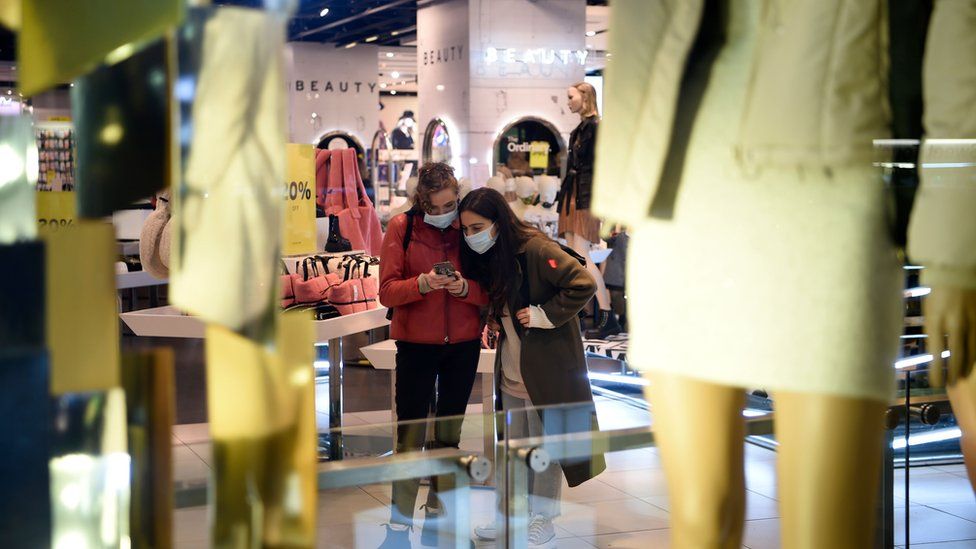
The UK's inflation rate unexpectedly fell to 0.4% in February, down from 0.7% in January, as the cost of clothes and second-hand cars tumbled.
The Office for National Statistics (ONS) said there had been a rise in the cost of petrol and diesel.
But that impact on consumer prices was more than offset by downward pressures, which also included falls in the cost of travel and toys.
February is traditionally a month where clothing prices would rise.
However, ONS deputy national statistician, Jonathan Athow said: "The impact of the pandemic has disrupted standard seasonal patterns."
Clothing and footwear prices fell between January and February for the first time since 2007 and are 5.7% lower than a year before, the biggest annual decline since November 2009.
Samuel Tombs, chief UK economist at Pantheon, said that despite inflation's "sudden drop due to temporary weakness in clothing prices" he still expected the rate to exceed 2% later this year.
"The lockdown has left clothing retailers with considerable excess stock to shift. Clothing prices likely have rebounded this month, now that retailers have introduced new seasonal ranges," he said.
Economists at Capital Economics also predicted that the "drag on from lockdowns won't last" and that UK inflation is set to rise slowly over the year.
Many economists had predicted inflation in February would rise slightly to about 0.8%, pushed higher by a big rise in fuel prices.
Price hikes
The ONS said that between January and February petrol prices rose by 3.6 pence per litre, and diesel prices rose by 3.4 pence per litre. Fuel prices fell in the same period last year.
Crude oil prices have been rising, which is expected to feed through into even higher costs at the pump, and household energy bills are also increasing after suppliers raised prices.
Wednesday's data came a week after the Bank of England had warned that the inflation rate would approach its 2% target level in the coming months, mainly due to energy price increases.
The BoE also left record-low interest rates at 0.1% last week and forecast that economic growth would recover towards pre-Covid levels this year.
The ONS said that core consumer price inflation - which excludes more volatile food and energy prices - dropped to 0.9% from 1.4%.
https://news.google.com/__i/rss/rd/articles/CBMiLGh0dHBzOi8vd3d3LmJiYy5jby51ay9uZXdzL2J1c2luZXNzLTU2NTAyMjg20gEwaHR0cHM6Ly93d3cuYmJjLmNvLnVrL25ld3MvYW1wL2J1c2luZXNzLTU2NTAyMjg2?oc=5
2021-03-24 08:07:17Z
52781456028118
Tidak ada komentar:
Posting Komentar